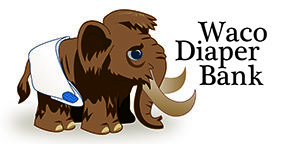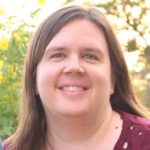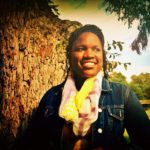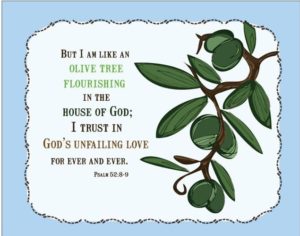by Ellen Filgo
When my older son finally potty trained at age 3 years and 4 months, it was a relief to not have to change the diapers of my articulate, stubborn little boy who clearly could use the toilet (but just didn’t want to). It also meant that I no longer had two children in diapers. That’s right, our family had two in diapers for more than a year! It was a relief on our budget to save that money. Diapers are expensive. They can cost up to $100 a month per baby, which can stretch even a middle class family’s budget.
Now imagine you are the 1 out of 3 families in the country who struggle to afford diapers. There are 5.8 million babies in the United States aged 3 or younger who live in poor or low-income families. Not having enough diapers can mean that babies are left in soiled diapers longer or that parents re-use diapers that are meant to be single use. This can lead to health risks for the babies, such as rashes or infections. A clean supply of diapers is also required at the vast majority of childcare centers. If parents can’t provide them, they may not be able to enroll their children in early childhood programs, or even be able to enter the workforce themselves. Lack of access to diapers can sometimes hinder a parent in getting or staying employed at the job they need in order to become more financially self-sufficient.
There is no state or federal safety net program that allocates money for diapers. You cannot buy diapers with SNAP (food stamps) or WIC (a federal program that helps provide food for women, infants and children). Many existing social service organizations, focusing on hunger, homelessness, abuse or pregnancy try to provide diapers to the families they serve, but they rely on irregular donations and they are often lacking larger sized diapers for toddlers.
 This is where the Waco Diaper Bank comes in. Our mission is to collect donations of diapers in order and distribute them to those other social service organizations. We will focus on diapers so that they can focus on their main missions. Our main way of collecting diapers will be through diaper drives. These can be organized by the volunteers working with the diaper bank, or by other people – Girl or Boy Scout groups, schools, fraternities or sororities, businesses – anyone can organize a drive! The Waco Diaper Bank will distribute the donations to our partner social service agencies. If individuals want to donate money, we can take that too! We can use it to purchase diapers in bulk, which can be a cheaper way of collecting diapers.
This is where the Waco Diaper Bank comes in. Our mission is to collect donations of diapers in order and distribute them to those other social service organizations. We will focus on diapers so that they can focus on their main missions. Our main way of collecting diapers will be through diaper drives. These can be organized by the volunteers working with the diaper bank, or by other people – Girl or Boy Scout groups, schools, fraternities or sororities, businesses – anyone can organize a drive! The Waco Diaper Bank will distribute the donations to our partner social service agencies. If individuals want to donate money, we can take that too! We can use it to purchase diapers in bulk, which can be a cheaper way of collecting diapers.
To kick things off, the Waco Diaper Bank is hosting a community wide December Diaper Drive from the 1st to the 14th of December. All sorts of churches, organizations and businesses have signed up to be drop-off locations for donated diapers. We’ll take everything – all brands, sizes, packages; we’ll even take loose diapers, opened packages or the leftovers from a “diaper cake!” You can find the drop-off locations and more information about the diaper bank at our website www.wacodiaperbank.org .
About a year ago, when I first heard about what a diaper bank was, I immediately knew that Waco needed a diaper bank, for two reasons – well, actually three! First, because of the high rate of poverty in Waco. There are a lot of little bottoms that need to stay clean, dry and healthy here in town. Secondly, because of the existence of so many great social service organizations that are already doing wonderful things. Collaboration is the watchword here in town and the diaper bank model is inherently a collaborative one. And the third reason was something that I knew about Waco, but hadn’t really FELT until we started our diaper drive promotion – Waco is a town with a great big heart. There may be a lot of need in our community, but there is also a lot of love and a willingness to give and share. And that’s why I believe my hopes for the Waco Diaper Bank will ultimately become a reality.
 Ellen Filgo is a research librarian at Baylor and a Wacoan of 8.5 years. She loves living in Sanger-Heights with her husband, her stepson and her two energetic little boys. She has been known to get sidetracked researching the answer to a random question casually asked in a Facebook post.
Ellen Filgo is a research librarian at Baylor and a Wacoan of 8.5 years. She loves living in Sanger-Heights with her husband, her stepson and her two energetic little boys. She has been known to get sidetracked researching the answer to a random question casually asked in a Facebook post.
The Act Locally Waco blog publishes posts with a connection to these aspirations for Waco. If you are interested in writing for the Act Locally Waco Blog, please email [email protected] for more information.
by Liz Ligawa
Her name is Olivia. And six years ago, she was expected to be born this month.
I was finally enjoying a stress-free day. After just wrapping up classes for this semester, I allowed myself to enjoy some respite from academic rigor by scrolling, unthinkingly, through my Facebook newsfeed. As I scrolled, I laughed…smiled…blocked (you just have to do that sometimes), and then suddenly stopped. NPR was seeking feedback on their Facebook page about what people “wished others knew about miscarriage”. I stared blankly at the screen of my iPhone, and felt uncomfortably, unnervingly bare. “How did this find me?” I wondered as tears rolled at pace with sighs. I tried to continue scrolling down as if I never saw the post. I looked for things that were funny. I looked for things that were cute. I looked for anything that would help me escape from dealing with the dynamite that had so casually been laid in my lap. This escape I could not find.
Our society has carried a message pretty well. The message we have historically been exposed to is one that makes womanhood synonymous to motherhood. Even a woman’s age is labeled with respect to having children- “child-bearing age”. The moment we become engaged, we start receiving inquiries regarding if we will have children. As soon as we sashay down the aisle, we are asked when we will have children. As soon as the first child is out, we are asked when we will have another. It seems to never end. Now, I am not against women, or children, or women having children, I just wonder what message we are sending to ourselves and other women when motherhood is not a part of our story.
I never expected to no longer be expecting. I did not anticipate the certainty of loss. As the news that I was carrying ignited applause, the fact that I miscarried would be silently observed. Unfortunately, I received this silence as a directive since I also did not know how to respond.
I scrolled back to the NPR Facebook page. I did not have a plan for what I would do once I got to the page. I was not even sure if I wanted to contribute to the survey. I just knew I had to go back. I cautiously started to view the comments that were listing. I wondered what truths would register in my heart, but also feared the shame that could also be exposed. Comment after comment, they kept on coming. Line upon line, they took ownership of space. One after the other, they told a story, and expressed truth. Post, after post, after post: Grief. Shame. Uncertainty. Self-Blame. Disbelief. Scorn. Fear. Rejection. Loss. Loss. Loss. I recognized my story. I recognized myself. What I did not understand is why we discuss this loss in such muted terms. Why do we whisper these wounds? Is it wrong to suffer loss?
As a newlywed, I was told that I would have plenty of time to try for more. As an expectant mother, I just wanted my baby.
As I looked at the commentary, I started to wonder how much our society’s view of womanhood and motherhood had to do with our personal experiences of loss. Should grief be automatically flanked by guilt and shame? If motherhood and womanhood were not used interchangeably, could we appreciate each more? If I am a woman, is it okay not to be a mother? My personal experience of guilt and shame were founded on the belief that having a child was as simple as being a woman. It is just not true. Some of the women who have impacted my life the most are those without birth children, or who have experienced loss of a child. I consider myself a part of them, and I am deeply privileged to be one of theirs.
In considering how I could listen more closely to others so that I may hear their whispered wounds, I learned that I first must bear witness to my own. When I ran across the Facebook post, it had been a year since I had spoken Olivia’s name, and just as long in acknowledging that pain. In this way, I am thankful for the survey.
So, on this day that mothers are celebrated, I am mindful of the mothers who have suffered loss; I am respectful of the dear ones who long to mother; I am honored by the ones who mother alongside me; and I am grateful for the ones who mother me.
Olivia
I grieve the first one of my womb
With hidden words
And muted hues
Silently and underneath
The uninquiring pleasantries
Stifling questions held the applause
Of things to be, now just what was
And memory’s unforgiving stare
Credits me for what’s not there
I grieve in syncopated breaths
When stillness fills the room
I grieve in smiles and how-do-you-dos
When still is gone too soon
We spread the news too soon I guess
But even those who knew
Are scared to hear or tell of you
The first one of my womb
-Liz Ligawa
If this post spoke to you because of a personal experience of miscarriage, stillbirth, early infant loss, or infertility, you may be interested to learn about Cradled by Love, Hope and Healing an organization in Waco that offers individual support as well as weekly peer support groups.
 This post was written by Liz Ligawa. Liz is a graduate student of Baylor University where she has found the perfect expression of her community-centered heart in the MDiv/MSW degree program. With a concentration on Community Practice, she is also the adoring mother of one son, Elijah, who prefers to be regarded in public as Spider-Man. She may be reached at [email protected].
This post was written by Liz Ligawa. Liz is a graduate student of Baylor University where she has found the perfect expression of her community-centered heart in the MDiv/MSW degree program. With a concentration on Community Practice, she is also the adoring mother of one son, Elijah, who prefers to be regarded in public as Spider-Man. She may be reached at [email protected].
The Act Locally Waco blog publishes posts with a connection to these aspirations for Waco. If you are interested in writing for the Act Locally Waco Blog, please email [email protected] for more information.
- « Previous
- 1
- 2

